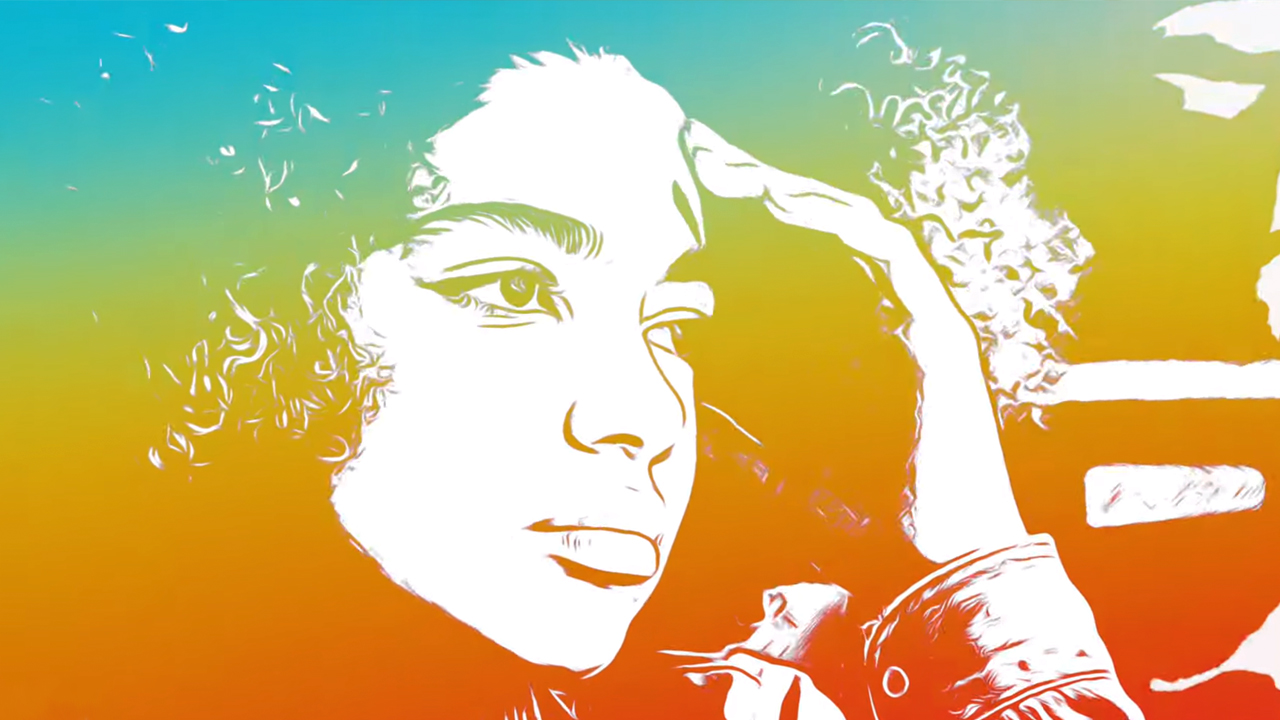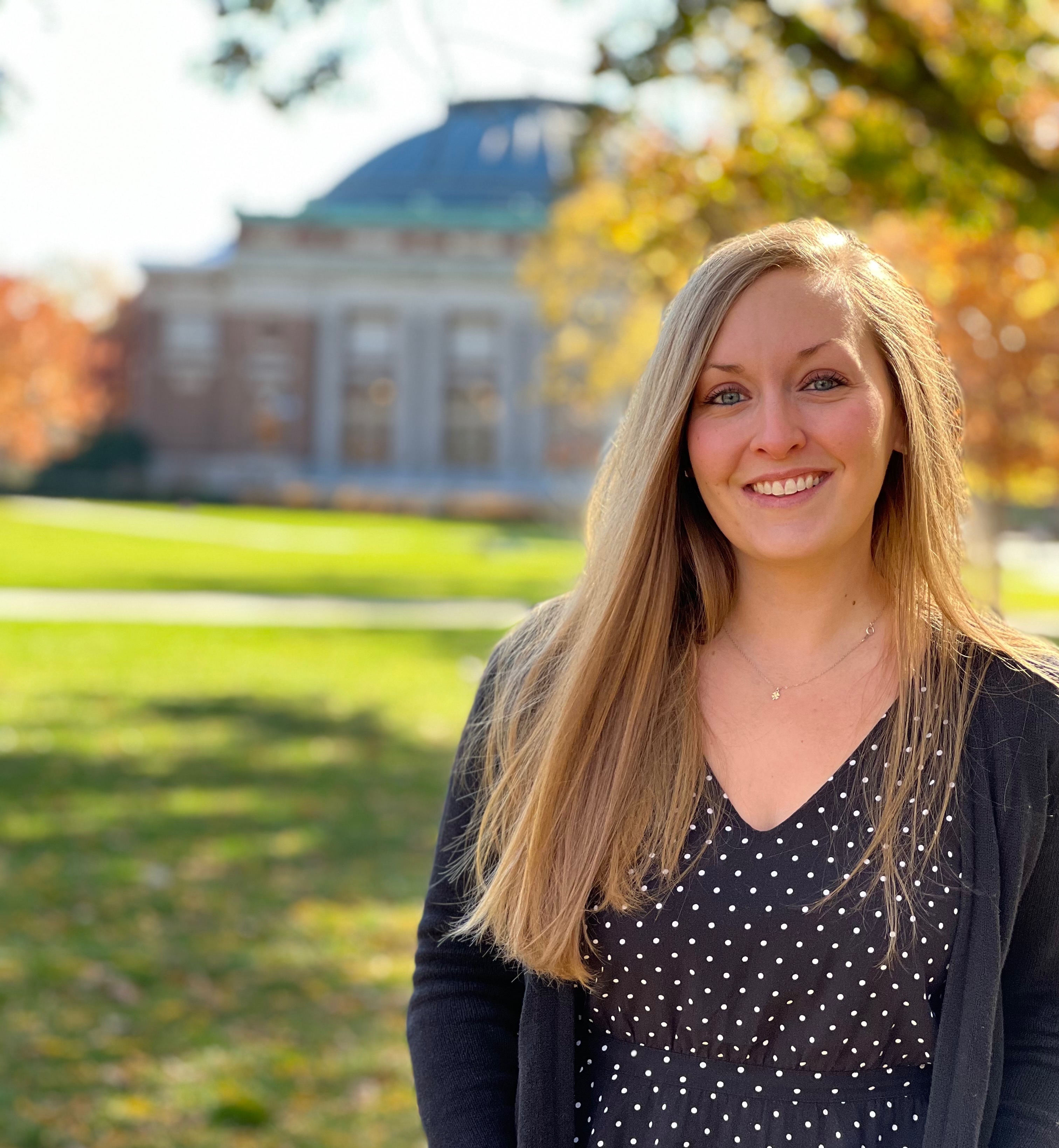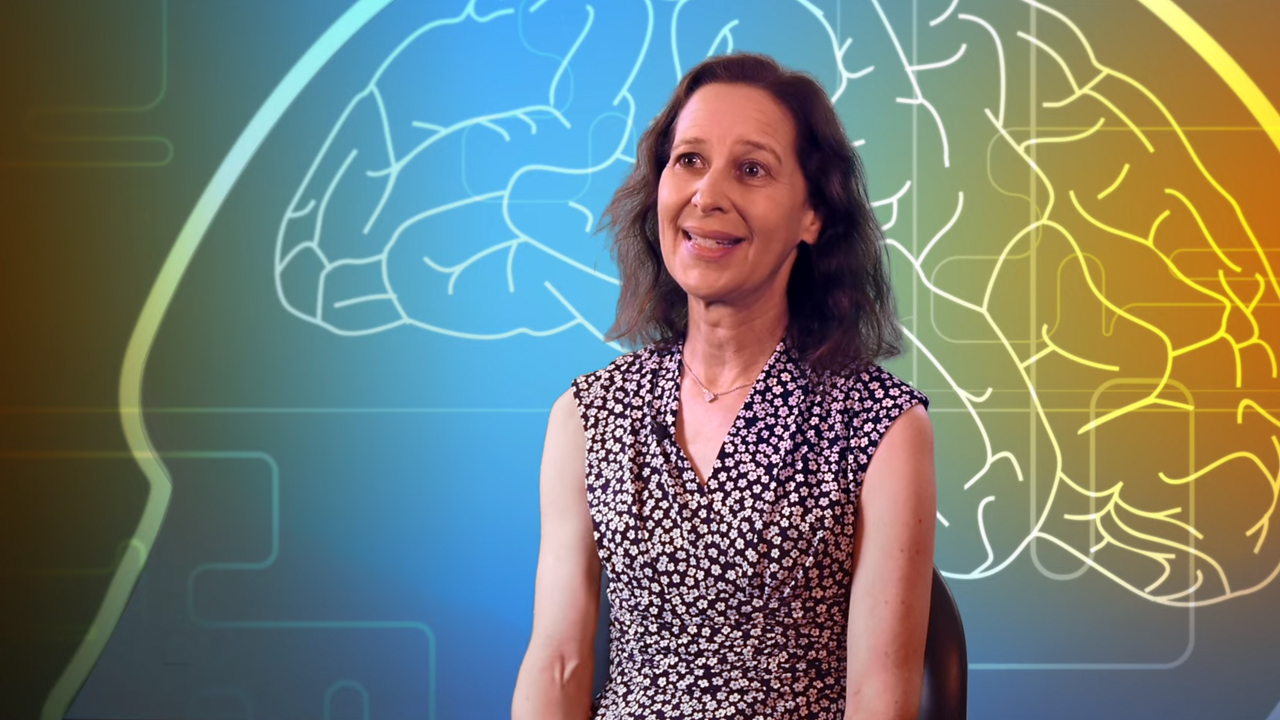Article

Lockers slam. Backpacks swing over shoulders. Shoes slap as students cluster and close ranks, lone footfalls speeding up, slowing down, and falling in step. The need for belonging follows a distinct soundscape in school hallways.
 Haley Skymba, a doctoral student studying clinical psychology at the University of Illinois Urbana-Champaign, led one of the first studies to demonstrate that past experiences with bullying, friendlessness, and other forms of social exclusion directly impact how teenage girls perceive their own self-worth and belonging.
Haley Skymba, a doctoral student studying clinical psychology at the University of Illinois Urbana-Champaign, led one of the first studies to demonstrate that past experiences with bullying, friendlessness, and other forms of social exclusion directly impact how teenage girls perceive their own self-worth and belonging.“We all feel the need to fit in socially, but teenagers feel this need more strongly than most,” said Haley Skymba, a doctoral student studying clinical psychology at the University of Illinois Urbana-Champaign. “What we don’t understand is why some teenagers feel it more strongly than others.”
A study led by Skymba and Karen Rudolph, a professor of psychology and a researcher at the Beckman Institute for Advanced Science and Technology, is among the first to demonstrate that past experiences with bullying, friendlessness, and other forms of social exclusion directly impact how teenage girls perceive their own self-worth and belonging. Exploring this connection is a crucial step for designing intervention programs to improve teenagers' mental health.
“Adolescence is not just a time of emotional turbulence. It’s also a window for intervention, where we can strengthen teenagers’ well-being in a sustainable way,” Skymba said.
The brain itself is partially to blame for the famously fraught nature of the teenage years: the amygdala, which influences the fight-or-flight response, becomes more active in adolescence, intensifying teenagers' emotional experiences. At the same time, teenagers begin to prioritize acceptance from friends and classmates over familial relationships.
Teenage girls crave social belonging with an urgency unmatched by any other age group, including older adults and young children, the researchers said.
“For some girls, the need to belong becomes a driving force in their relationships, increasing their susceptibility to mental health disorders like anxiety and depression, and, potentially, their vulnerability to peer pressure,” Rudolph said.
 Karen Rudolph, a psychology professor and researcher at the Beckman Institute, led a pioneering study that demonstrated the connection between teenage girls' past experiences and their susceptibility to peer pressure and threatened self-worth.
Karen Rudolph, a psychology professor and researcher at the Beckman Institute, led a pioneering study that demonstrated the connection between teenage girls' past experiences and their susceptibility to peer pressure and threatened self-worth.To better understand how teenage girls' peer experiences early in life might influence their sensitivity to interpersonal pressures as adolescents, the researchers designed a study to observe trends in a cohort of 89 girls averaging 16 years old. Their results are reported in the Journal of Research on Adolescence.
The participants began by rating how strongly they identified with statements describing their needs for belonging (e.g., “I want other people to accept me”) and approval (e.g., “Being liked by other kids makes me feel better about myself”). They also reported their perceived levels of self-esteem, social belonging, and social control.
Next, they played Cyberball, a virtual ball-tossing game designed to safely simulate peer exclusion. By controlling an onscreen hand, each participant was encouraged to play a cooperative game of catch with computer-programmed avatars ostensibly operated by fellow participants in another room. In the first round, they were tossed the ball an equal number of times; in the second round, they were gradually excluded from the game. Fifteen and 35 minutes after the ball-tossing game, participants recorded the levels of self-esteem, social belonging, and social control they experienced while playing.
Karen Rudolph and Haley Skymba of the Family Studies Lab discuss how adolescent girls can be particularly impacted by peer adversity. Rudolph is a professor of psychology at the University of Illinois Urbana-Champaign. Skymba is a doctoral student in the Department of Psychology at Illinois.In the final stage of the study, interviewers documented the participants’ lifelong and recent histories of peer adversity, which third-party coders translated into numeric rankings.
“We wanted to measure teenage girls’ general interpersonal needs, as well as how those needs might be threatened in the face of an actual, real-time stressor,” Skymba said, referring to Cyberball. "Then, we could compare those with the information from the coders to look for patterns to connect the past with the present."
The patterns they found demonstrated that teenage girls’ interpersonal needs are indeed a product of past experiences. Knowing teenage girls’ peer history, then, may lead to a more informed understanding of how to nurture their interpersonal needs.
“This study is invaluable in our efforts to identify who is the most vulnerable, and pinpoint when and where that vulnerability originates,” Rudolph said.
Chronic and recent experiences with peer adversity led to unique outcomes. Notably, girls with a recent history of peer adversity reported an elevated need for peer approval — even when a lifelong history of adversity was not present. Conversely, in the Cyberball game, teenage girls with a lifelong history of peer adversity reported more sustained threats to their belonging needs than those without.
“While we can’t stop negative peer experiences from happening, we can certainly use this information to improve how adolescents respond to them,” Skymba said. “We can encourage adolescents to find self-worth internally, and we can equip them with coping mechanisms they need to create a stable foundation of well-being.”
Rudolph and Skymba’s research in UIUC’s Family Studies Lab uses functional neuroimaging technologies, or fMRI, in the Beckman Institute Biomedical Imaging Center to track how teenagers’ brains respond to both stressful and rewarding social experiences. They observed that in victims of chronic bullying, stressful experiences prompted more activation in brain regions involved in processing important events and social information; rewarding experiences prompted more activation in brain regions involved in perspective-taking and reward.
“This research suggests that victims of bullying are very tuned into being part of a social group. They find it particularly painful to be excluded and particularly rewarding to belong,” Rudolph said.
As a next step, the researchers hope to design an intervention program to help teenagers manage intense emotions. Instilling confidence in adolescents is an important, and often neglected, first step, the researchers said.
“There is a societal perception that the teenage years are an emotional time, and there is not much that can be done to make it easier; we hope to challenge this perception,” Rudolph said. “We’re not teaching that teens shouldn’t have negative emotions, just that emotions don’t need to take over their lives,” Rudolph said.
Science doesn’t deny that being a teenager is tough, and neither do Rudolph and Skymba. Their research is helping to write the old adage a new ending.
Editor's notes:
The article titled “Peer adversity predicts interpersonal needs in adolescent girls,” can be accessed online at https://doi.org/10.1111/jora.12741
Research reported in this press release was supported by the National Institute of Mental Health of the National Institutes of Health under award numbers MH105655 and MH68444. The content is solely the responsibility of the author and does not necessarily represent the official views of the National Institutes of Health.
To watch a YouTube video about this research, visit: https://youtu.be/PS8BYuxAQLo
To learn more about this work, visit https://labs.psychology.illinois.edu/familystudieslab
For a full list of authors, please consult the publication.
Media contact: Jenna Kurtzweil, kurtzwe2@illinois.edu
Beckman Institute for Advanced Science and Technology